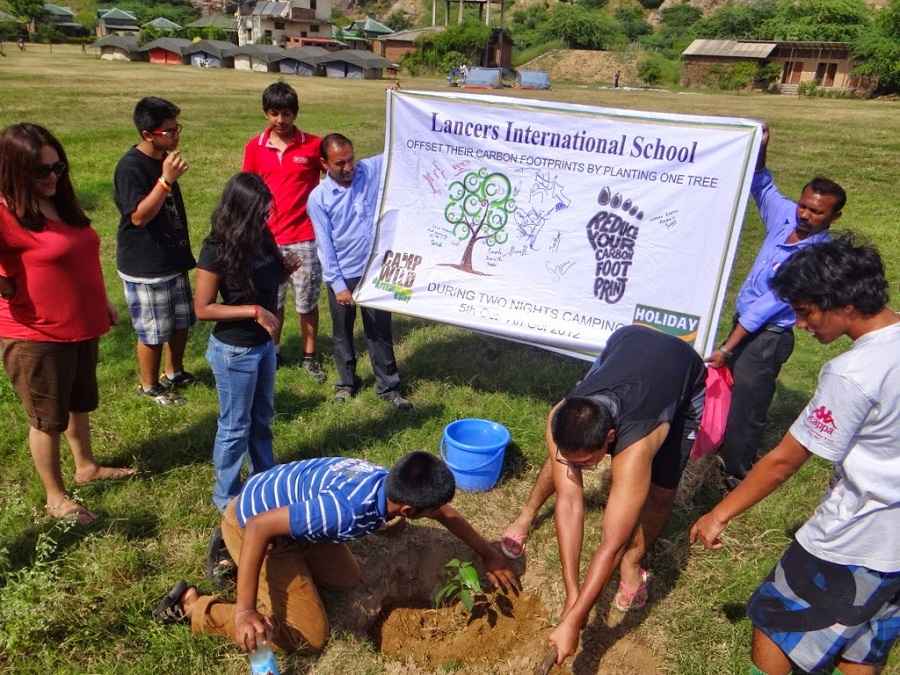The term 'carbon footprint' has become tremendously popular over the last few years and is now in wide spread use across the media. 'Carbon footprint' has become a widely used term and concept in the public debate on responsibility and abatement action against the threat of global climate change. A 'carbon footprint' measures the total greenhouse gas emissions caused directly and indirectly by a person, organisation, event or product. With climate change high up on the political and corporate agenda, carbon footprint calculations are in strong demand. Numerous approaches have been proposed to provide estimates, ranging from basic online calculators to sophisticated life-cycle analysis or input-output-based methods and tools. Carbon footprint is actually a 'carbon weight' of kilograms or tonnes per person or activity."
 Carbon footprint at Camp Wild
Carbon footprint at Camp Wild Carbon footprint is a cycle assessment with the analysis limited to emissions that have an effect and calculations are done taking into account direct and indirect emissions occurring due to consumption activities. Total carbon footprint/emission quantification would include energy related emissions from human activities - that is, from heat, light, power and refrigeration and all transport related emissions from cars, freight and distribution, etc. The following activities are taken into account when we receive groups at "Camp Wild Dhauj":-
1.Diesel spent while using transport for groups and administrative purposes
2.LPG used for cooking food
3.Electricity used
At "Camp Wild Dhauj", we employ simple, constructive ways to reduce and offset the carbon shoe size generated by the groups that come to us:-
 Ford Event at Camp Wild
Ford Event at Camp Wild